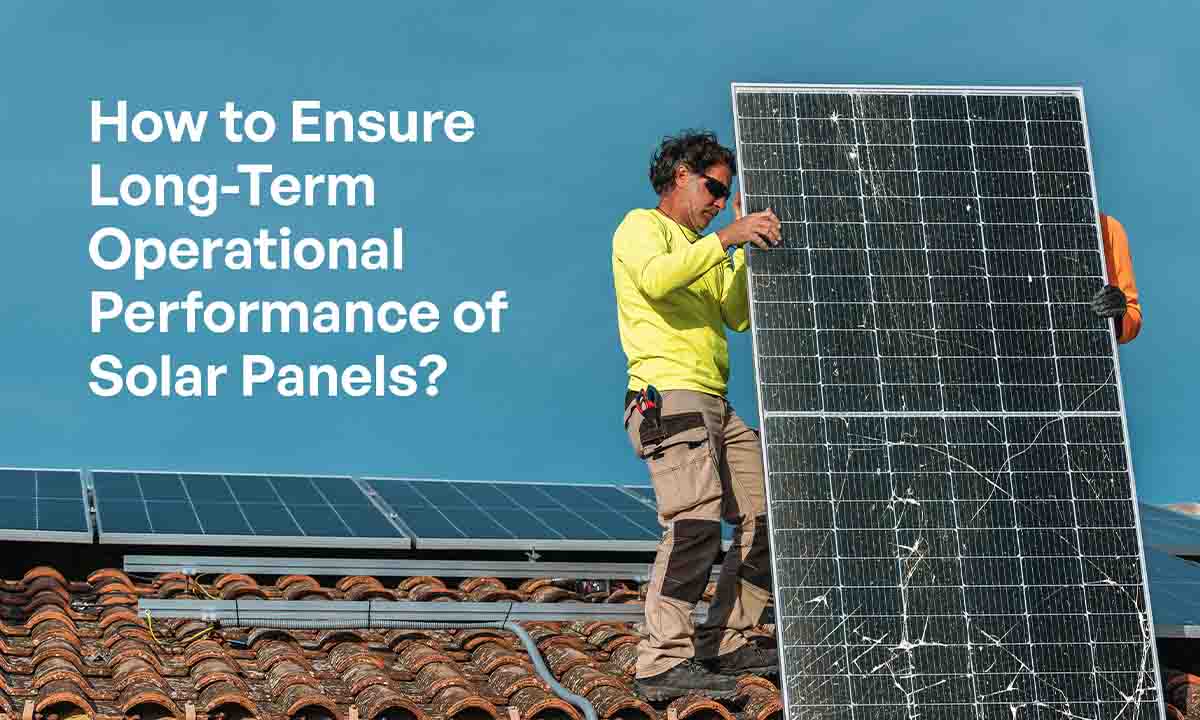
How to Ensure Long-Term Operational Performance of Solar Panels?
Is it possible for solar panels to wear out by the end of their lifespan? Most customers have asked us this question, and so, we’re here to answer this question in this blog.
Solar panels boast a design life of 25 to 30 years. Over these years, they will be exposed to cold and heat along with other external factors like hailstorms, snow, and rain. While these are inevitable factors affecting a solar panel’s efficiency, it is necessary to understand the methods to delay the wear and tear process.
What affects the efficiency of solar panels?
External and natural conditions like harsh weather will inevitably affect solar panels and their effectiveness in operating. However, other factors affect solar panels as well, and here’s what these include:
The location and the angle of the solar panel installed
Many times, the solar panels have not been strategically placed as per the angle and its location. This results in an overwork of the solar panel to absorb the sun’s power. So, if the project is based in the north of the equator, it is necessary to fix the solar panel facing the south to produce optimal energy and power, and vice versa.
Steeper slopes in some areas
In areas with seasonal variations in the sun’s angle, the slope of a rooftop might likely pose problems. A roof with a steeper slope may be more suitable in such areas.
High temperatures can hurt your solar panels
An area that has maximum sunlight is good for solar panels to absorb the sun’s power. However, if the heat in that area is too much, it’s a problem.
Here are several ways in which solar panels get affected as temperatures rise:
- Solar panels have a Temperature Coefficient (TC-P) suggesting efficiency loss as temperatures rise.
- Semiconductor materials like silicon show increased electrical conductivity.
- Increase in electron-hole pairs with higher non-radiative recombination.
- Output voltage of solar panels decreases because of increased carrier concentration.
- Inverters that convert solar DC to AC are affected by high temperatures.
Placing solar panels in well-lit areas is the best option as long as there is a consistent flow of wind, or at least intermittently.
Making sure that the above factors are taken into consideration can greatly impact the functioning of solar panels. Other factors can also include shaded areas, installing techniques of mounting structures, inverters, cables, plant capacity, and a well-designed system.